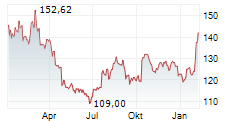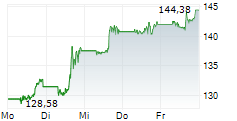
MIAMI, FL / ACCESSWIRE / November 4, 2024 / Los Angeles County's recent lawsuit against major brands over alleged plastic pollution is a prime example of regulatory systems focused on punitive measures instead of progress. The lawsuit holds companies like Coca-Cola and Pepsi accountable for the persistence of plastics in the environment, pushing the narrative of blame onto them. But in reality, this approach ignores the complexities and the rapid evolution of sustainability technologies. Rather than facilitating progress, such actions highlight a lack of understanding about the intricate systems in place-and the transformative tools that could make substantial change possible. That lawsuit is more than misguided; it's downright insulting.
Companies like Coca-Cola and Pepsi have already taken enormous steps toward regulating their own sustainability processes, incorporating recycling initiatives, and pledging to reduce plastic use. But these brands face a maze of regulations that can conflict, stall, or even penalize innovation. The real issue isn't a lack of effort from corporations; existing regulatory frameworks challenge them, and those proposed often fail to align with the sophisticated, evolving technologies that make accountability possible on an unprecedented scale.
In other words, rather than assembling all the stakeholders and leveraging their enormous financial and technical power to create tangible solutions- agencies, governments, and especially politicians in election years would instead grab headlines, levy fines against the most philanthropic companies in the world, and punt the problem in a direction that will never deliver the results they supposedly seek. Ironically, while they are drafting thousands of pages of law or giving long-winded speeches, real solutions that can be seamlessly implemented to track a supply chain lifecycle from source to end are available right now.
SMX Technology Is A Verifiable Enabler of Sustainable Change
Today's advancements, such as those offered by SMX (NASDAQ: SMX), provide groundbreaking ways to meet sustainability goals without needing punitive mandates. SMX's digital traceability solutions allow companies to track the entire lifecycle of their materials, from sourcing to recycling. By embedding digital markers into materials, thereby creating a "digital twin," companies gain a transparent, accountable system that ensures compliance with recycling goals and verifies material origins.
Here's the better part- SMX technology isn't born out of compliance mandates. The technology was designed to transform from mandates to a commercial environment where companies are incentivized not only from a socially conscious perspective but also financially. Moreover, it creates a self-regulatory landscape, with SMX technology equipping companies with the means to substantiate their sustainability commitments rather than forcing compliance through fines.
This approach is particularly relevant in California, where stringent laws like the Responsible Textile Recovery Act aim to enforce sustainability through oversight rather than incentive. While well-intentioned at their core, these laws overlook the fact that many companies already have the tools-like SMX's technology-to achieve and even exceed compliance, so long as they are empowered, not hampered, by policy. Remember, resources are not unlimited. Millions taken as fines reduce the financial pot available to bring companies together.
The Case for Corporate Self-Regulation
Technologies like SMXs can more than mitigate that damage; they can inspire real change. Historically, large corporations sometimes had no other option but to pay fines. That's less of an admission of guilt as it is a reflection that the production cycle has become increasingly fragmented, with so many moving parts compared to a decade ago that sector-to-sector compliance is virtually impossible. However, the landscape has shifted dramatically.
Today, these corporations seek and recognize sources and means to integrate sustainable practices to satisfy consumer expectations and meet their operational goals. With access to cutting-edge solutions, like SMXs, they can now overcome challenges like plastic traceability, which previously made sustainability difficult to verify.
SMX's Plastic Cycle Token (PCT) is becoming a large part of the conversation. Rightly so. This single, blockchain-based asset enables companies to create an auditable, open-market system that fosters recycling and waste reduction. Unlike traditional regulatory carbon credits-which have proven insufficient in holding companies accountable in the long term-PCTs offer a real-world valuation that can be traded in an open market for recycled materials, tracking their journey, encouraging, and financially rewarding reuse. This tokenized system makes self-regulation viable and profitable, driving actual behavioral change through market incentives rather than imposed fines.
Why Regulations Need to Change
The best part about SMX's PCT is that it takes punitive regulation head-on. That's a timely battle. Many companies find their sustainability goals caught between adhering to government-mandated quotas and implementing new technology that could serve these goals more effectively. Regulatory bodies focused on metrics are missing the potential for cooperation with companies that understand both the limitations and the possibilities of their own supply chains. LA County's lawsuit epitomizes this disconnect, targeting companies without acknowledging that the answers lie not in blame but in support of innovation and scalability. They should look at SMX.
In complex industries like food and beverage, metals, fashion, and packaging, technology like SMX's digital twin capabilities has the power to more than create a pathway to reach the endpoints regulators want; it can lead the circular economy. By allowing materials to be tracked from source to end-use, SMX technology enables brands to meet sustainability targets far more efficiently and accurately than regulatory pressures could. This shift would support companies, regardless of size, in achieving transparency goals at a pace dictated by innovation rather than litigation.
Time For Collaboration Over Penalties
SMX's "Google of materials" approach is not only a response to consumer demands for transparency but also to current regulatory frameworks' inefficiencies. These frameworks, which often apply one-size-fits-all solutions, frequently fail to account for industry-specific complexities and the sophisticated technologies available to address them. If regulatory bodies prioritized understanding these technologies, they could facilitate a system that helps companies succeed without stifling their progress.
The message to LA County and similar regulatory entities worldwide should be clear: Focus on partnering with companies and fostering an environment that allows technology to drive sustainable change. This isn't about sidestepping responsibility-it's about utilizing solutions that work.
For Coca-Cola, Pepsi, and countless other companies leading self-regulated sustainability initiatives, the future lies in embracing advanced technologies like SMX's, which pave the way for meaningful accountability and environmental impact. With the right support, they could achieve a level of transparency and sustainability that no punitive law could mandate.
Sources:
https://www.reuters.com/legal/los-angeles-county-sues-pepsico-coca-cola-over-plastic-pollution-2024-10-31/
https://packagingeurope.com/news/all-27-member-states-miss-collection-and-recycling-targets-and-face-infringement-procedure/11677.article
https://www.knowesg.com/regulators/mcdonalds-tests-plastic-reduction-amid-pressure-28032023
https://www.smx.tech/home
https://www.smx.tech/technology
https://digitaldemocracy.calmatters.org/bills/ca_202320240sb707
Disclaimers and Disclosures: This Disclaimer and Disclosure statement is a permanent part of this content. Any reproduction of this content in part or whole that does not include the Disclaimer and Disclosure statement is unauthorized and strictly prohibited. Hawk Point Media Group, Llc. (HPM) is responsible for the production and distribution of this content. Hawk Point Media Group, Llc. is not operated by a licensed broker, a dealer, or a registered investment adviser. It should be expressly understood that under no circumstances does any information published herein represent a recommendation to buy or sell a security. Our reports/releases are a commercial advertisement and are for general information purposes ONLY. We are engaged in the business of marketing and advertising companies for monetary compensation. Never invest in any stock featured on our site or emails unless you can afford to lose your entire investment. The information made available by Hawk Point Media Group, Llc. is not intended to be, nor does it constitute, investment advice or recommendations. The contributors do NOT buy and sell securities before or during any coverage periods. For a full disclaimer and disclosure statement, click HERE.
Media contact:
ken@hawkpointmedia.com
305-998-1876
SOURCE: SMX (Security Matters)
View the original press release on accesswire.com



